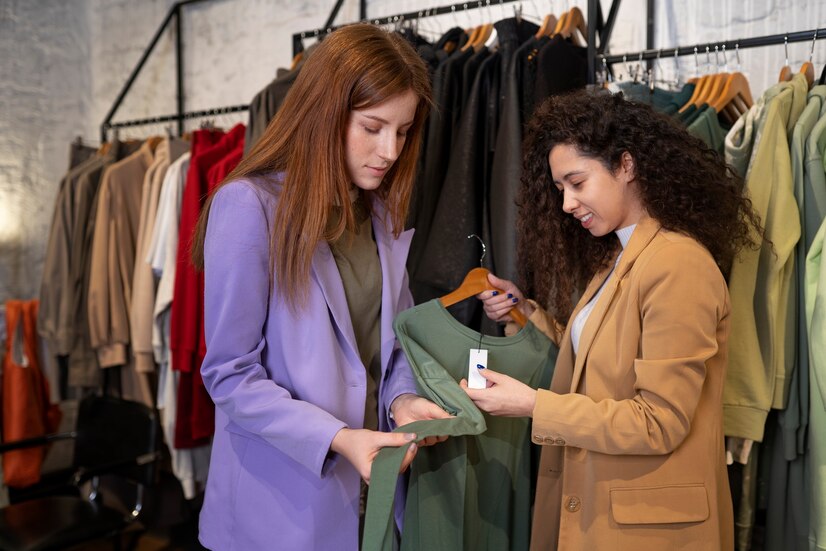The fashion industry has long been associated with glamor, trends, and style. However, behind the scenes, it leaves a significant environmental footprint. From the production of textile fibers to the disposal of garments, the fashion industry contributes to pollution, waste, and resource depletion. In recent years, there has been a growing awareness about the need for sustainable fashion, and supporting op shops has emerged as a key solution.
Overview of the current fashion industry and its environmental impact
The current fashion industry operates on a linear model, known as fast fashion, where trends are quickly produced and discarded. This fast-paced cycle puts immense pressure on the environment. The production of clothing involves the use of natural resources, energy-intensive processes, and harmful chemicals. Additionally, the majority of garments end up in landfills, where they can take hundreds of years to decompose, releasing greenhouse gasses in the process.
How op shops support sustainable fashion
Op shops, also known as thrift stores or charity shops, play a vital role in promoting sustainable fashion. By selling donated clothing and other items, op shops extend the lifespan of these goods and reduce the demand for new production. This, in turn, helps to minimize the environmental impact of the fashion industry.
Good Sammy op shops provide an alternative to buying new clothes, allowing consumers to participate in sustainable fashion without compromising their style or budget. By purchasing second-hand items, shoppers can reduce waste and contribute to the circular economy. Additionally, op shops often have a wide range of clothing options, from high-end designer pieces to unique vintage finds.
Other benefits of shopping at op shops
A. Economical benefits of second-hand shopping
Shopping at op shops offers various economic advantages. Firstly, second-hand items are often sold at a fraction of their original price, making it an affordable option for consumers. This is particularly beneficial for those on a tight budget or individuals who prefer to save money. Op shops also offer the opportunity to find high-quality items at a lower price than buying new.
B. Unique, vintage, and rare finds
Op shops are a treasure trove for those seeking unique pieces and vintage fashion. Unlike mainstream retail stores, op shops offer a diverse selection of clothing from different eras and styles. Whether it’s a 1960s dress or a retro denim jacket, op shops provide a chance to express individuality through fashion. These one-of-a-kind finds not only add character to one’s wardrobe but also contribute to a more sustainable and conscious fashion culture.
C. The community and charitable aspects of op shops
Beyond the fashion aspect, op shops have a strong community and charitable focus. Many op shops are run by charities or non-profit organizations, using the revenue generated from sales to support various community programs and initiatives. By shopping at op shops, consumers contribute to these causes and help improve the lives of others. Op shops also serve as a meeting point for locals, fostering a sense of community and connection.
How to responsibly shop at op shops
When shopping at op shops, it is important to do so responsibly. Here are some tips to keep in mind:
1. Check for quality: Inspect the items carefully before purchasing to ensure they are in good condition. Avoid buying items that are heavily damaged or require extensive repairs.
2. Try before you buy: Op shops may not always have fitting rooms, but try to gauge the size and fit of the garment by holding it up or checking measurements. This will help avoid returns and unnecessary waste.
3. Be open-minded: Op shops offer a wide variety of styles and sizes, so be open to exploring different options. You may come across unexpected gems that you wouldn’t find in a regular retail store.
Supporting op shops beyond shopping
Supporting op shops doesn’t end with shopping. Here are some ways to further contribute to the sustainable fashion movement:
A. Volunteering at op shops
Op shops often rely on volunteers to help with various tasks, such as sorting donations, organizing the store, or assisting customers. By volunteering your time and skills, you can directly contribute to the success of op shops and support their charitable endeavors.
B. Donating clothes, furniture, and other goods
Cleaning out your closet or decluttering your home? Donate unwanted clothing, furniture, and other goods to op shops. This not only helps you declutter, but it also provides others with the opportunity to find quality items at affordable prices. Donations enable op shops to maintain a steady supply of merchandise and generate revenue for their initiatives.
C. Hosting clothing swap parties and promoting op shops
Organize clothing swap parties with friends and family to exchange unwanted items and promote the idea of sustainable fashion. Encourage others to shop at op shops and share the benefits of second-hand shopping. By spreading the word, you can help create a culture of conscious consumption and support sustainable fashion practices.
Conclusion
Supporting op shops is essential for sustainable fashion. By choosing to shop at op shops, consumers can actively reduce waste, extend the lifespan of clothing, and support charitable causes. The economic benefits, unique finds, and community aspects make op shops an attractive alternative to traditional retail.
Additionally, volunteering, donating, and promoting op shops further contribute to the sustainable fashion movement. With increased awareness and support, op shops can play a significant role in creating a more environmentally conscious and socially responsible fashion industry.











